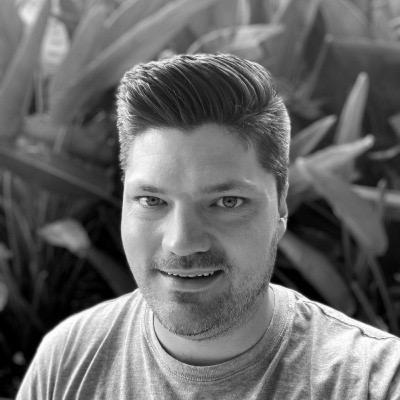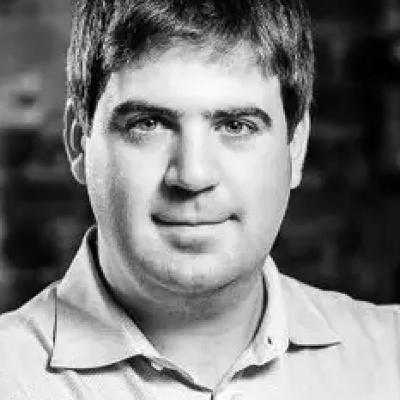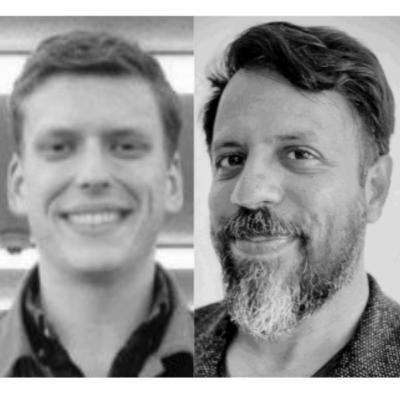Discover Open Source Startup Podcast
Open Source Startup Podcast

185 Episodes
Reverse
In our latest episode, Robby and Tim talk with Will McGugan, creator of the Rich and Textual open source projects and founder of Textualize and Toad (not yet released), about the challenges of turning beloved open-source projects into real businesses. Despite Rich and Textual's huge adoption in the Python community, he says he waited too long to monetize, focused too much on technical perfection, and tried to build infrastructure before a killer product. He also burned himself out and wishes he had simplified and hired earlier.McGugan believes the terminal is a neglected but essential interface, prized for speed and flow. Rich and Textual modernized terminal output, but monetizing open-core dev tools proved difficult. His new project, Toad, aims to be a universal AI front-end for the terminal - open-source, protocol-driven, and able to plug into different agent back ends like Claude and others. The goal: seamless workflows and modern UX in the environment developers already live in.Big takeaways: monetize early, ship a killer app sooner, don’t overcomplicate structure, and avoid grinding yourself into the ground.
In this episode, we sit down with Paul Klein IV, Founder & CEO of Browserbase, to explore how his team is redefining the foundation of AI-driven browser automation. Browserbase provides the web browser infrastructure for AI agents and apps, and its open-source SDK, Stagehand, lets developers write automations using natural language - adapting seamlessly as websites evolve.Paul shares his belief that browser automation is a critical but underinvested primitive that future AI applications will depend on for years. He traces the journey from the limitations of traditional headless browsers and brittle RPA tools to the emergence of a cleaner, more adaptable framework built for the AI era.We dive into:Stagehand’s design philosophy: minimal feature bloat and strong abstractions.Developer-first community: TypeScript and Python support driven by user demand and open-source contributions prioritized through community PRs.Director, Browserbase’s new layer for non-technical users: “if v0 was for building websites, Director is for building automations.”How open source investment fuels both innovation and integration, and why Browserbase believes the next billion-dollar company will be built on top of its framework.The evolving relationship between AI agents and the web, touching on Cloudflare, automation ethics, and where the line lies between automation and scraping.Paul also reflects on inspiration from figures like Jeff Lawson, the importance of great abstractions for new developers, and the “moment of magic” when AI begins to work on your behalf.
This episode dives into why code quality still matters in the age of AI, and why English - no matter how good models get - won’t replace programming.Our guest is Co-Founder of Boundary, Vaibhav Gupta, and he shares the journey behind BAML, a new programming language to write and manage AI logic. After 12 pivots and 3.5 years, the team realized something simple but powerful:AI tools were evolving fast, but the code was ugly.Most AI generated code was unnecessarily long and messy. For builders who viewed code as artistic expression, that was painful. Once they tried BAML, everything changed. It was clean, elegant - completely the opposite of AI slop.It wasn’t an overnight success. It took nine months to reach ten users — but the early ones stayed because of thoughtful design:Easy model swappingFull visibility into every prompt and test caseA workflow so simple that non-technical users (even lawyers!) could test codeBAML was built with a philosophy that code is the source of truth, not the docs.The conversation touches on how LLM observability and thoughtfully designed code make BAML unique. It’s inspired by the same thinking that made React sticky - beauty and composability.Pretty code, the founder believes, isn’t vanity - it’s a functional advantage:Fewer bugsEasier to reason aboutFriendlier for AI-generated systems
In the episode, we sat down with ClickHouse Co-Founder Yury Izrailevsky to unpack how one of the fastest open-source databases in the world became the analytics engine of choice for 2,000 customers including Harvey, Canva, HP, and Supabase. From its Yandex origins to powering AI observability, Yury shares how ClickHouse balances open-source roots, cloud innovation, and a remote-first culture moving at breakneck speed.ClickHouse's Series C valued the company at $6.35B earlier this year, and just yesterday they announced an extension to that round, just months after it was raised. In this episode, we dig into:Origins & Founding StoryClickHouse began as an internal project at Yandex to power a Google Analytics–style platform, focused on performance and scale.Open-sourced in 2016 - rapid global adoption laid the foundation for ClickHouse the company. Yury first discovered ClickHouse while at Google; impressed by its speed, he later co-founded the company in 2021 alongside Aaron Katz (ex-Elastic) and the original creator Alexey Milovidov.Why ClickHouse Stands OutColumn-oriented, open source OLAP database designed for massive-scale analytical processing.Excels in performance, efficiency, and cost - ideal for large data volumes and real-time analytics (and now AI workloads). Architectural choices:Columnar storage = better compression and faster execution.Separation of compute and storage enables elasticity, scalability, and resilience in the cloud.Open Source vs. CloudOpen-source version offers freedom and flexibility.Cloud product delivers much lower total cost of ownership and fully managed experience.Architectural parity between the two ensuring no vendor lock-in for customers. Customers can run the same queries on both; most stay with cloud due to simplicity and cost efficiency.Use Cases & Ecosystem4 main use cases:Real-time analyticsData WarehousingObservability AI / ML WorkloadsCompany Building & CultureFully remote from day one.Prioritized experienced, self-sufficient engineers over early-career hires.Built and launched GA version in less than a year - insane pace of innovation.Innovation & CommunityMonthly release cadence.Hundreds of integrations and connectors.Strong open-source and commercial communityAdvice for FoundersFocus on what matters most Hire mature, independent thinkers.Move fast but maintain quality; ClickHouse Cloud achieved production-grade quality in record time.
Chang She is Co-Founder & CEO of LanceDB, the multimodal lakehouse platform. Their open source data format lance has over 5K stars on GitHub and is a modern columnar data format for ML and LLMs implemented in Rust.LanceDB has raised $41M from investors including Theory Ventures, CRV, and Essence VC. In this episode, we dig into:Early focus: autonomous vehicles; solved real-time analysis limits with Lance format → 9,000% performance gain.Multi-modal AI taking off (vision, audio, text); Midjourney & Runway as pioneers; audio now a major category.How they built trust through open source.Integrated workflows (data prep + search + embedding) going beyond vector DBs; education needed to show full value.Cloud/serverless launch in 2023–24 enabled seamless local-to-production use.Future bets: audio infra, robotics, spatial reasoning; vector DBs risk irrelevance if they don’t evolve.
Ryan Djurovich is the Founder & CEO of Nadrama, the open source infrastructure automation platform that deploys containers instantly. In this episode, we dig into:Kubernetes challenges that still exist today – setup and operations are notoriously hard and complex.What great developer experience means to him – focused on making deployments super simple by streamlining infrastructure and common tasks.Core value of Nadrama – developers just want to deploy apps; Nadrama abstracts away infrastructure pain.His view on what being truly open source means (including using the Apache 2.0 license) Ryan's user discovery process - talking directly with as many users as possible, mining his network / folks he's worked with in the past, community events & meetups.Navigating the earliest days of Nadrama Security philosophy – believes in baseline security for all accounts (not just enterprise), informed by a Cloudflare background.
Morgante Pell is the Founder of Grit, the developer tool that puts software maintenance on autopilot and was acquired by Honeycomb in April 2025. In this episode, we dig into:The Grit product and how LLMs have made software maintenance much more efficient Launching GritQL - Grit's embedded query language for searching and transforming codeTheir early focus on the JavaScript community The motivation for Grit to open sourceHow AI generated code has put pressure on software maintenanceWhere new problems have been created by AI-generated code The acquisition by Honeycomb - motivation, integration, and how the deal happened
Emma Burrows is Co-Founder & CTO of Portia AI, the platform to build AI agents in regulated environments. Their open source Python SDK provides a developer framework for predictable and stateful agentic workflows. Portia AI has raised around $5M from investors including General Catalyst and First Minute Capital.In this episode, we dig into:Why they built an end-to-end platform from agent planning to deployment The focus on accuracy as their true north star metric Their paid contribution program How their found their initial ICP in regulated industries Why 2026 will be the year of agents Her best fundraising advice (hint: never really stop fundraising)
Alan Braithwaite is Co-Founder & CTO of RunReveal, the security data platform with real-time monitoring, built-in detections, and AI-powered investigations. Today, they manage and analyze security logs for teams at Harvey, ClickHouse, Cloudflare, and Temporal. RunReveal has multiple open source projects including event stream processing library kawa and query language pql. RunReveal has raised from investors including Costanoa, Modern Technical Fund, and Runtime Ventures. In this episode, we dig into:Why today's modern security teams are rethinking data management The benefits of building RunReveal on ClickHouse How they worked with early believers / customers like TemporalTheir open source strategy and building trust with the community through open sourcing components like their event processing libraryTheir MCP server and enabling security teams to use AI to automate investigations (including the launch of their new remote MCP server)
Vasek Mlejnsky is Co-Founder & CEO of E2B, the open-source runtime for executing AI-generated code in secure cloud sandboxes. Essentially, they give AI agents cloud computers. Their open source repos, particularly e2b which has 9K GitHub stars, have been widely adopted to help securely run AI-generated code. E2B has raised $12M from investors including Decibel and Sunflower. In this episode, we dig into:Why agents need a sandboxBuilding a new category of infra tooling, much like LaunchDarkly Some of their viral content moments - including Greg Brockman sharing their videosFiguring out the right commercial offering Why they don't agree with pricing per token Why moving from Prague to the Bay Area felt essential for them as founders
Roman Gershman is Co-Founder & CTO of Dragonfly, the drop-in Redis replacement for heavy data workloads that has significant performance, cost, and scale benefits. Their open source dragonflydb has 28K stars on GitHub. Dragonfly has raised $21M from investors including Quiet Capital and Redpoint. In this episode, we dig into:The challenges with Redis The users that have really benefitted from Dragonfly (high scale + real-time needs - gaming, B2C) The benefits of being multi-threaded How they got some of their bigger users / customers like Twilio, SoFi, and Spotify
Lukas Schulte is Co-Founder & CEO of SDF Labs, the developer platform that scales SQL understanding across organizations, which was recently acquired by data transformation unicorn dbt Labs. In this episode, he's joined by Anders Swanson, Senior Developer Experience Advocate at dbt, to discuss the acquisition and future of data engineering. In this episode, we dig into:How the acquisition happened, as well as the M&A process How dbt thinks about building capabilities internally vs. making acquisitions How the SDF platform will improve the lives of dbt users The most challenging parts about the integration What the future developer experience for data teams will be like A glimpse into the future of data engineering
Andrew Norris is Co-Founder & CEO of DevCycle, the leading feature flagging platform based on the OpenFeature project. OpenFeature provides a standard for feature flagging unifying tools behind a common interface and avoiding vendor lock-in at the code level.DevCycle is a product created by Taplytics, the platform for marketing and product teams to A/B test. In 2023, they raised $5M to scale DevCycle. In this episode, we dig into:The creation of DevCycle through insights at Taplytics Learning to sell to engineers (DevCycle) vs. marketing teams (Taplytics)The decision to keep Talytics going vs. focus solely on DevCycle Why engineers prefer open standards like OpenFeatureHow their GTM works alongside OpenFeature
Aviram Hassan is Co-Founder & CEO of MetalBear, the cloud development platform that lets developers run local code as if it were part of their remote environment. Their project, mirrord, has 4K stars on GitHub and is loved by users at companies like SentinelOne, Flexport, and Run.ai. In this episode, we dig into:How traditional staging environments create friction for cloud developersTheir unique approach that allows for concurrency - and educating the market on itHow open source helped build trust with big, enterprise customers early The story behind their first big customer winFocusing on a killer, fast time to value implementation Introducing monetization early, and how their products align with open source mirrord
Manik Surtani is Head of Open Source and Bradley Axen is Principal Engineer at Block. Manik was key to launching Block's Open Source Programs Office and Bradley is a major open source contributor - including the project Goose which is Block's extensible AI agent project. It currently has over 11K stars on GitHub and has been used for a number of internal use cases at Block as well as by the general AI builder ecosystem. In this episode, we dig into:Block's history releasing and supporting open source projects, and how that led to the creation of the programs office How big companies like Block approach open source and come up with ideas for projects like GooseThe Goose project and how it's different from other agent frameworks
Nikhil Rao is Co-Founder of Reflex, the open source framework to build and deploy web apps in python. Their project, also called reflex, has over 22K stars on GitHub and is a library to build full-stack web apps.Reflex has raised $5M from investors including Lux Capital. In this episode, we dig into:The power of deploying apps using only Python Balancing abstraction and code level access for users The challenges low code frameworks have had becoming production-gradeThe apps users are building with ReflexHow he thought about Reflex Cloud Their vision to be as big as React
Ben Sigelman is the Co-Founder & CEO of observability platform Lightstep as well as Co-Creator of open source observability frameworks OpenTracing and OpenTelemetry. Lightstep was acquired by ServiceNow in 2021 and OpenTelemetry was released in 2019 and has since become the standard observability framework. In this episode, we dig into:The founding story for Lightstep - including the initial pivot into the ideaThe benefits Lightstep got from open sourcing OpenTracing The OpenTracing and OpenCensus merger into OpenTelemetryWhy OpenTelemetry has been so widely adopted Ben's perspective on the many companies building with OpenTelemetry todayHow their team made the decision to take the ServiceNow acquisition Company building learnings around team building (& more!)
Tobie Morgan Hitchcock is the Co-Founder & CEO of SurrealDB, the next generation serverless cloud database for modern applications. Their open source database, also called surrealdb, has 30K stars on GitHub. SurrealDB has raised $26M from investors including FirstMark and Georgian. In this episode, we dig into:Taking a broad vs. niche approach to building a new databaseHow coming from a non-traditional DB background helped Tobie take a new, first principles approachHow graph databases best reflect how humans think The importance of design for infra products How enterprises vs. SMBs / individual users view their value How open source helped them develop trust with large companiesPlanning out their cloud offering
Misha Bragin is the Founder & CEO of NetBird, the open source zero trust networking platform that allows companies and individuals to create secure private networks without the hassle of corporate networks. Their open source, also called netbird, has over 12K stars on GitHub and connects devices into a secure WireGuard-based overlay network. NetBird has raised $4M from investors including InReach Ventures. In this episode, we discuss: Pivoting away from their initial hardware-based approach How the growth in remote employees has driven demand Why VPNs needed to be reinvented Why they use the WireGuard protocol What's different about their approach vs. Tailscale Managing big and small users at the same time Why most technical founders should hire a technical marketer early
Kevin Wang is Founder & CEO of Fossa, the product security platform that automates compliance & security across open source third party code, suppliers, and tools. In this episode, we discuss: Where Kevin's interest in open source started Learning to work with big enterprises The shift from scanning to fixing Repositioning from an engineering to security platform Resisting the market pressure to push hard into AI
























